第75章 CHAPTER XV THE BLUEBOTTLE: THE GRUB(3)
What is their number to one mother? I have already spoken of a deposit of three hundred, counted egg by egg. A quite fortuitous circumstance enabled me to go much farther. In the first week of January 1905, we experienced a sudden short cold snap of a severity very exceptional in my part of the country. The thermometer fell to twelve degrees below zero. While a fierce north wind was raging and beginning to redden the leaves of the olive trees, came one and brought me a barn or screech owl, which he had found on the ground, exposed to the air, not far from my house. My reputation as a lover of animals made the donor believe that I should be pleased with his gift.
I was, as a matter of fact, but for reasons whereof the finder certainly never dreamt. The owl was untouched, with trim feathers and not the least wound that showed. Perhaps he had died of cold.
What made me gratefully accept the present was exactly that which would have inclined anyone but myself to refuse it. The owl's eyes, glazed in death, were hidden under a thick mass of eggs, which I recognized as a bluebottle's. Similar masses occupied the vicinity of the nostrils. If I wanted maggots, here, of a certainty, was a richer crop than I had ever beheld.
I place the corpse on the sand of a pan, with a wire gauze cover, and leave events to take their course. The laboratory in which Iinstall my bird is none other than my study. It is as cold in there, or nearly, as outside, so much so that the water in the aquarium in which I used to rear caddis worms has frozen into a solid block of ice. Under these conditions of temperature, the owl's eyes keep their white veil of germs unchanged. Nothing stirs, nothing swarms. Weary of waiting, I pay no more attention to the carcass; I leave the future to decide whether the cold has exterminated the fly's family or not.
Before the end of March, the packets of eggs have disappeared, Iknow not how long. The bird, for that matter, seems to be intact.
On the ventral surface, which is turned to the air, the feathers keep their smooth arrangement and their fresh coloring. I lift the thing. It is light, very dry and gives a hard sound, like an old shoe tanned by the summer sun in the fields. There is no smell.
The dryness has vanquished the stench, which, in any case, was never offensive during that time of frost. On the other hand, the back, which touched the sand, is a loathsome wreck, partly deprived of its feathers. The quills of the tail are bare barreled; a few whitened bones show, deprived of their muscles. The skin has turned into a dark leather, pierced with round holes like those of a sieve. It is all hideously ugly, but most instructive.
The wretched owl, with his shattered backbone, teaches us, first of all, that a temperature twelve degrees of frost does not endanger the existence of the bluebottle's germs. The worms were born without accident, despite the rude blast; they feasted copiously on extract of meat; then, growing big and fat, they descended into the earth by piercing round holes in the bird's skin. Their pupae must now be in the sand of the pan.
They are, in point of fact, and in such numbers that I have to resort to sifting in order to collect them. If I used the forceps, I should never have done sorting so great a quantity. The sand passes through the meshes of the sieve, the pupae remain above. To count them would wear out my patience. I measure them by the bushel, that is to say, with a thimble of which I know the holding capacity in pupae. The result of my calculation is not far short of nine hundred.
Does this family proceed from one mother? I am quite ready to admit it, so unlikely is it that the bluebottle, who is so rare inside our houses during the severe cold of winter, should be frequent enough outside to form into groups and to do business in common while an icy blast is raging. A belated specimen, the plaything of the north wind, and one alone must have deposited the burden of her ovaries on the owl's eyes. This laying of nine hundred eggs, an incomplete laying perhaps, bears witness to the mighty part played by the fly as a liquidator of corpses.
Before throwing away the screech owl treated by the worms, let us overcome our repugnance and give a glance inside the bird. We see a tortuous cavity, fenced in by nameless ruins. Muscles and bowels have disappeared, converted into broth and gradually consumed by the teeming throng. In every part, what was wet has become dry, what was solid muddy. In vain my forceps ransacks every nook and corner: it does not hit upon a single pupa. All the worms have emigrated, all, without exception. From first to last, they have forsaken the refuge of the corpse, so soft to their delicate skins;they have left the velvet for the hard ground. Is dryness necessary to them at this stage? They had it in the carcass, which was thoroughly drained. Would they protect themselves against the cold and rain? No shelter could suit them better than the thick quilt of the feathers, which has remained wholly undamaged on the belly, the breast and every part that was not in touch with the ground. It looks as though they had fled from comfort to seek a less kindly dwelling place. When the hour of transformation came, all left the owl, that most excellent lodging; all dived into the sand.